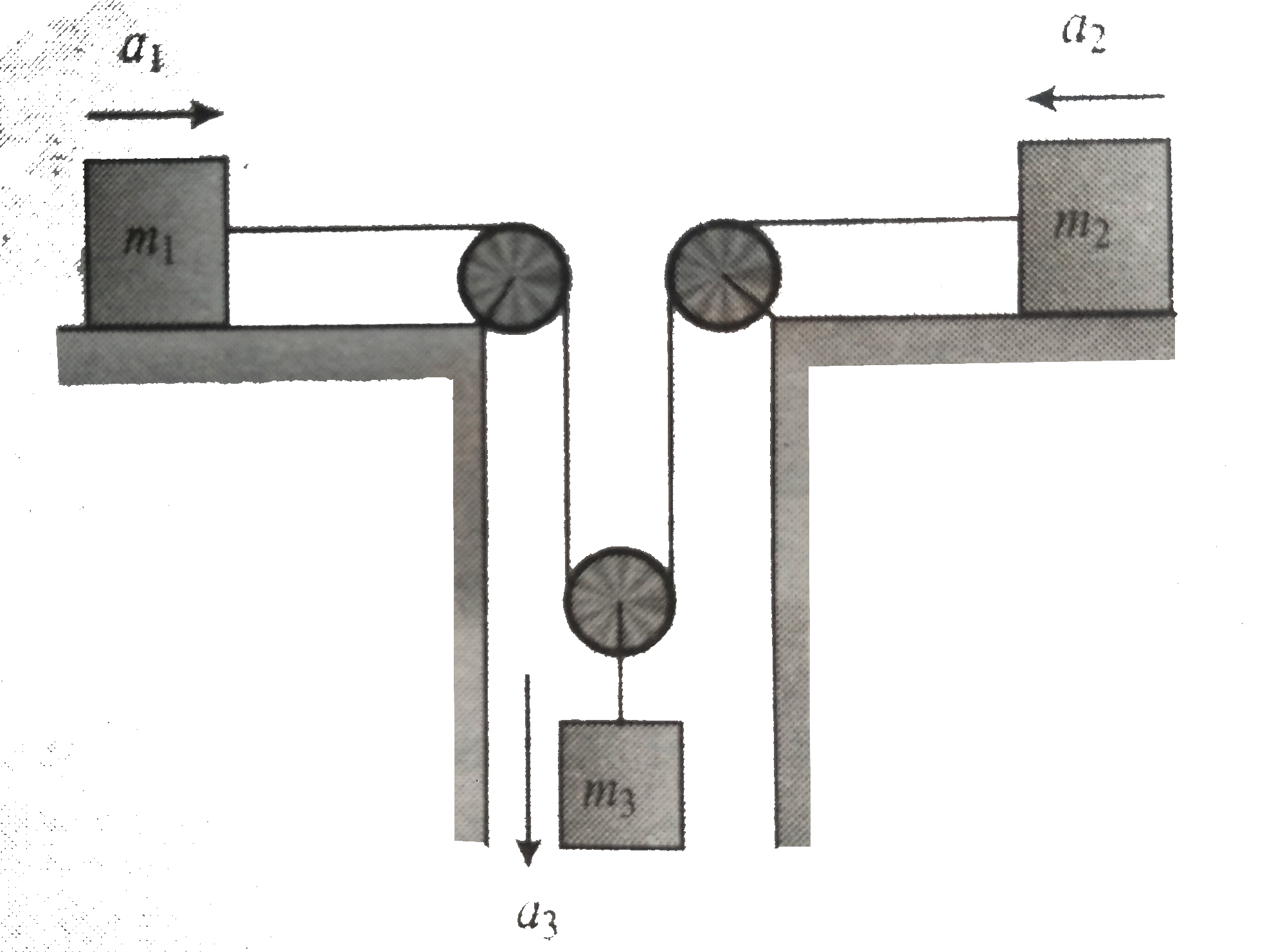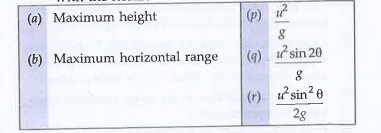If the string is inextensible, determine the velocity u of each block in terms of v and θ.
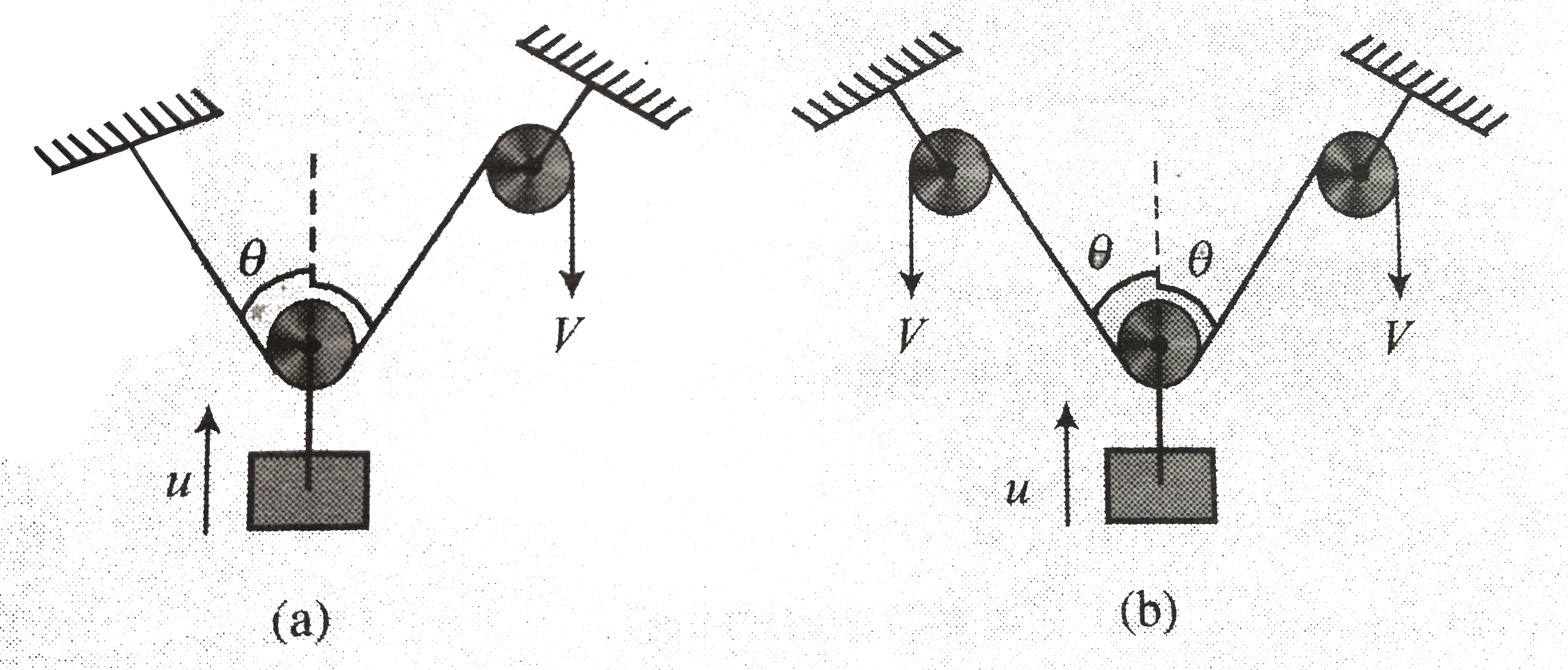
(a) fig a: u=…
(b) fig.(b): u=….
(a) Length of the string: l=x+2√h2+y2
Differentiating, we get dldt=dxdt+22y2√h2+y2dydt
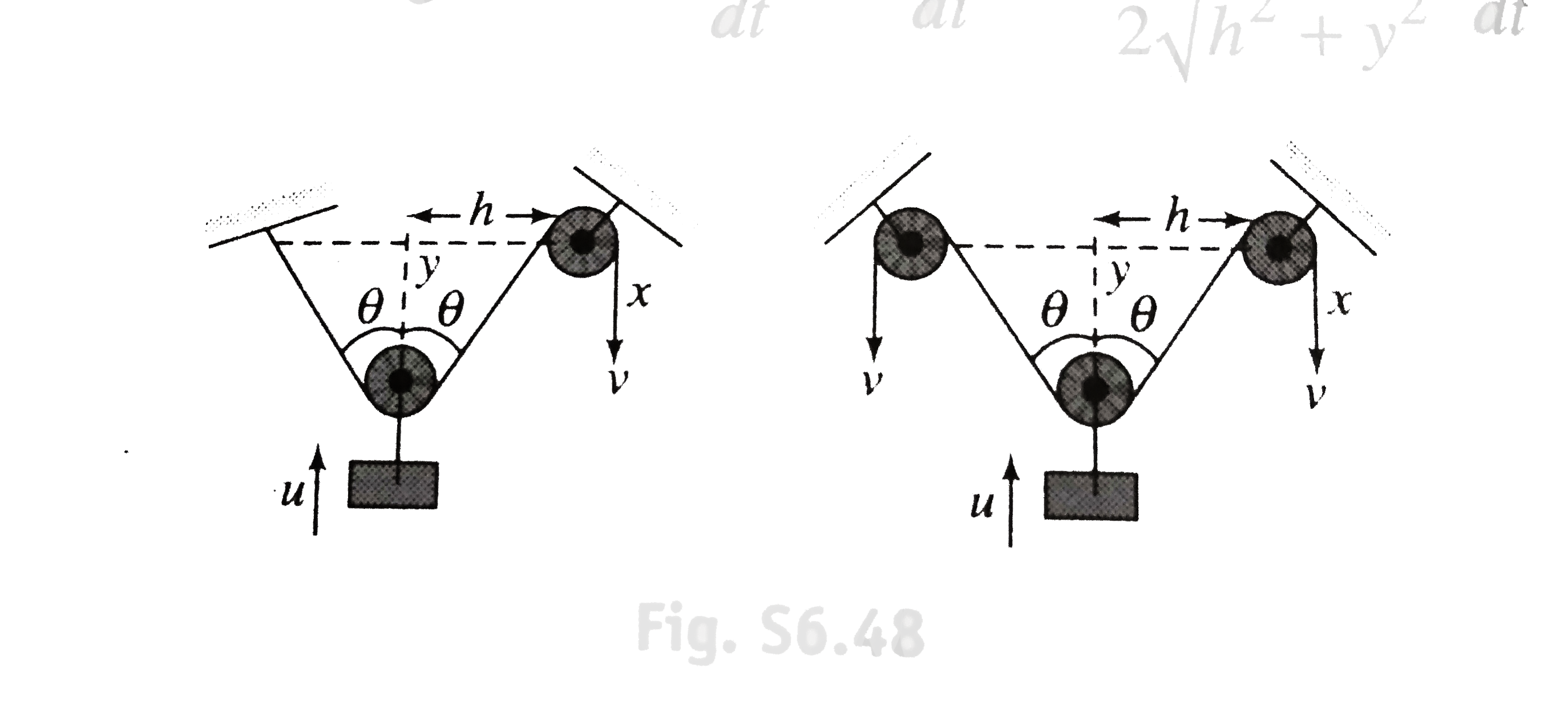
⇒0=v+2y√h2+y2(−u)
⇒0=v−2ucosθ⇒u=v/cosθ
(b) Length of string, l=2x+2√h2+y2
Again differentiate to get u=v/cosθ.
Topper's Solved these Questions
- NEWTON'S LAWS OF MOTION 1BOOK - CENGAGE PHYSICSCHAPTER - NEWTON'S LAWS OF MOTION 1EXERCISE - Exercise 6.4
13 Videos
- NEWTON'S LAWS OF MOTION 1BOOK - CENGAGE PHYSICSCHAPTER - NEWTON'S LAWS OF MOTION 1EXERCISE - Subjective
15 Videos
- NEWTON'S LAWS OF MOTION 1BOOK - CENGAGE PHYSICSCHAPTER - NEWTON'S LAWS OF MOTION 1EXERCISE - Exercise 6.2
35 Videos
- MISCELLANEOUS VOLUME 2BOOK - CENGAGE PHYSICSCHAPTER - MISCELLANEOUS VOLUME 2EXERCISE - INTEGER_TYPE
10 Videos
- NEWTON'S LAWS OF MOTION 2BOOK - CENGAGE PHYSICSCHAPTER - NEWTON'S LAWS OF MOTION 2EXERCISE - Integer type
1 Videos
Similar Questions
Knowledge Check
If block A is moving horizontally with velocity vA, then find the velocity of block B at the instant as shown in fig.
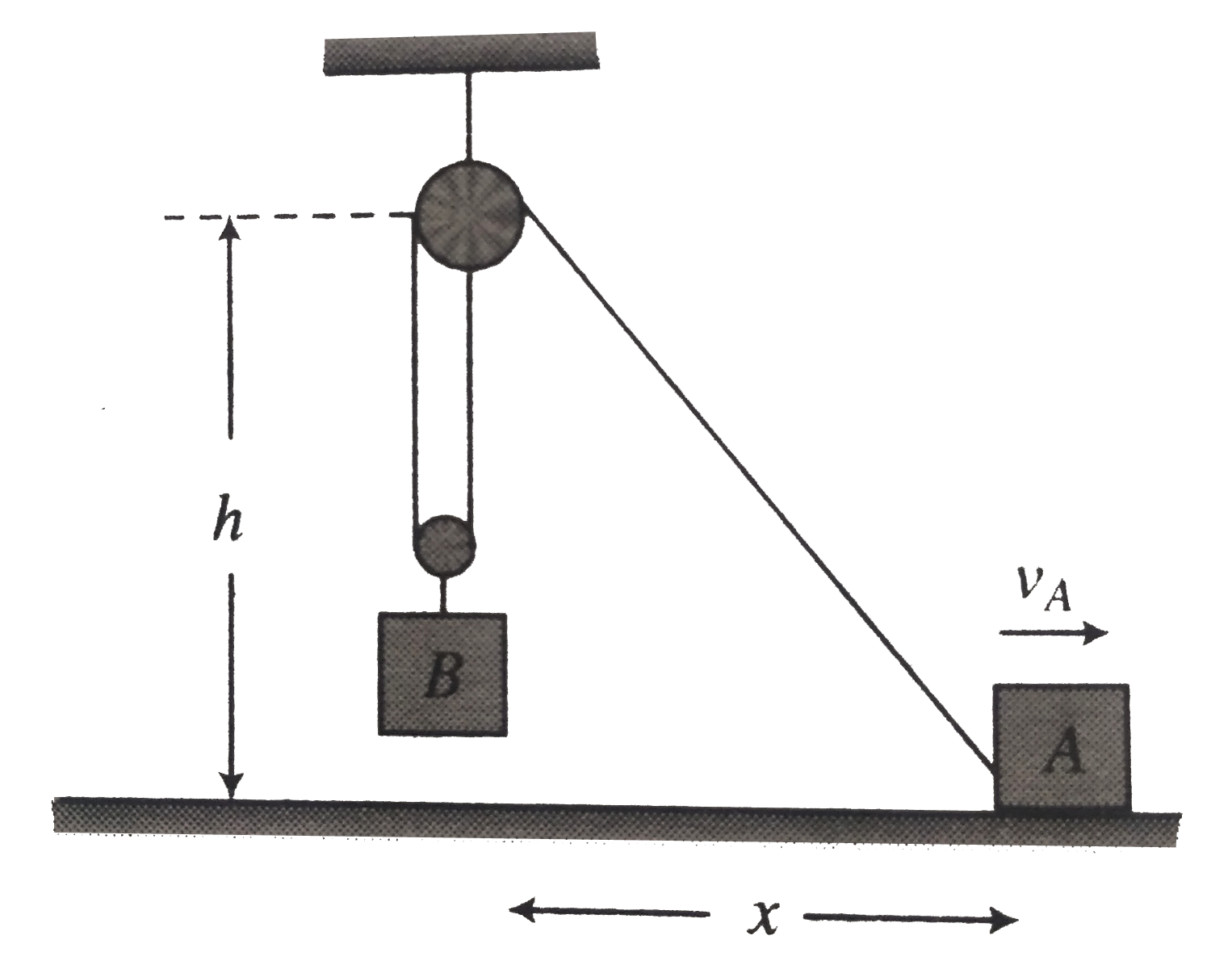 AhvA2√x2+h2BxvA√x2+h2CxvA2√x2+h2DhvA√x2+h2
AhvA2√x2+h2BxvA√x2+h2CxvA2√x2+h2DhvA√x2+h2In figures (a), (b) and (c) shown, the objects A, B and C are of same mass. String, spring and pulley are massless. C strikes B with velocity u in each case and sticks it. The ratio of velocity of B in case (a) to (b) to (c) is
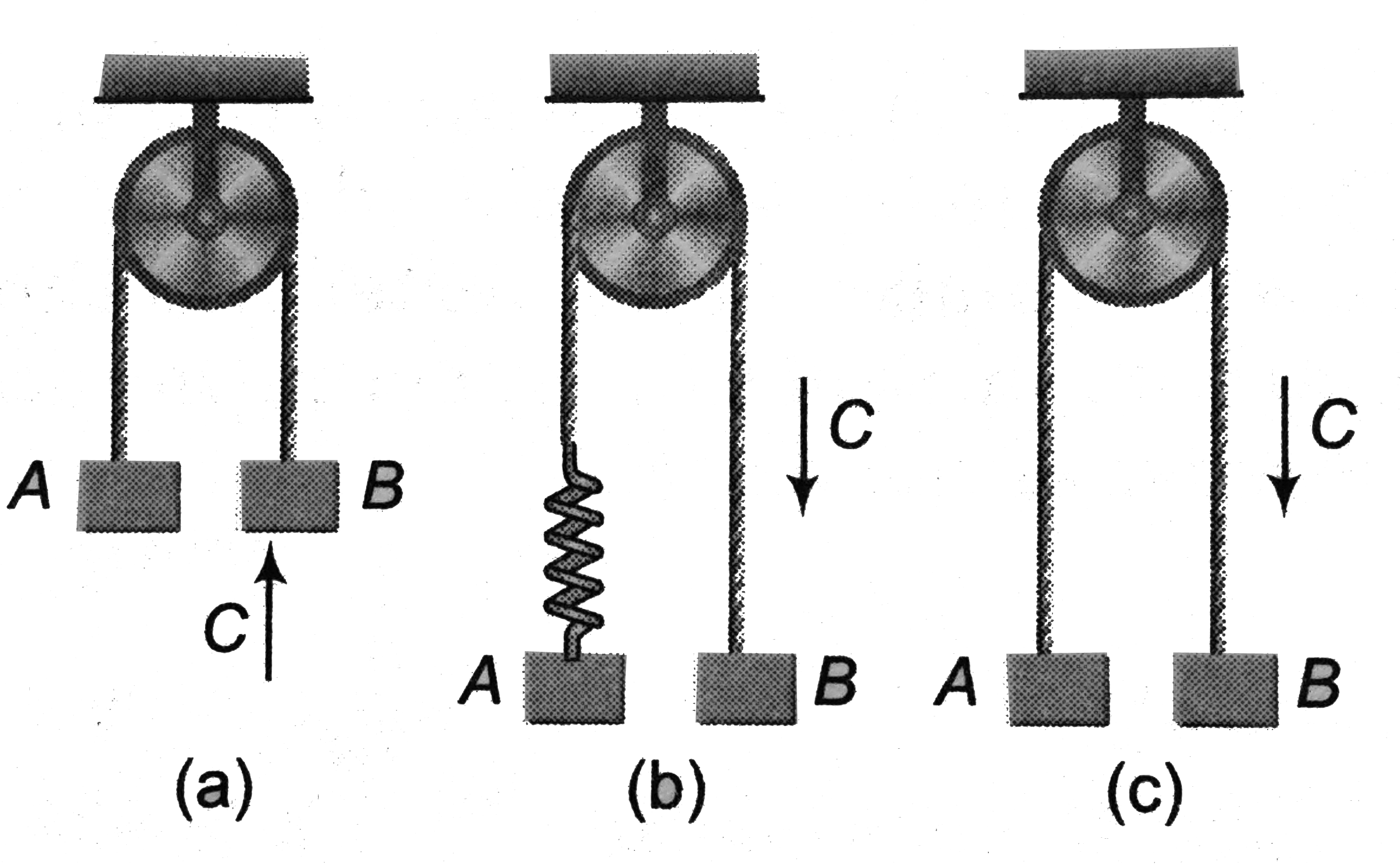 A(a) 1:1:1B(b) 3:3:2C(c) 3:2:2:D(d) 1:2:3
A(a) 1:1:1B(b) 3:3:2C(c) 3:2:2:D(d) 1:2:3In the arrangement shown in fig. The strings are light and inextensible. The surface over which blocks are placed is smooth. Find:

(a) the acceleration of each block.
(b) the tension in each string.Aa=4ms−2 b=16N , 24NBa=6ms−2 b=12N , 24NCa=−4ms−2 b=16N , 12NDa=−5ms−2 b=26N , 24N
In the arrangement shown in the fig, block A is pulled so that it moves horizontally along the line AX with constant velocity u. Block B moves along the incline. Find the time taken by B to reach the pulley P if u=1m/s. The string is inextensible.
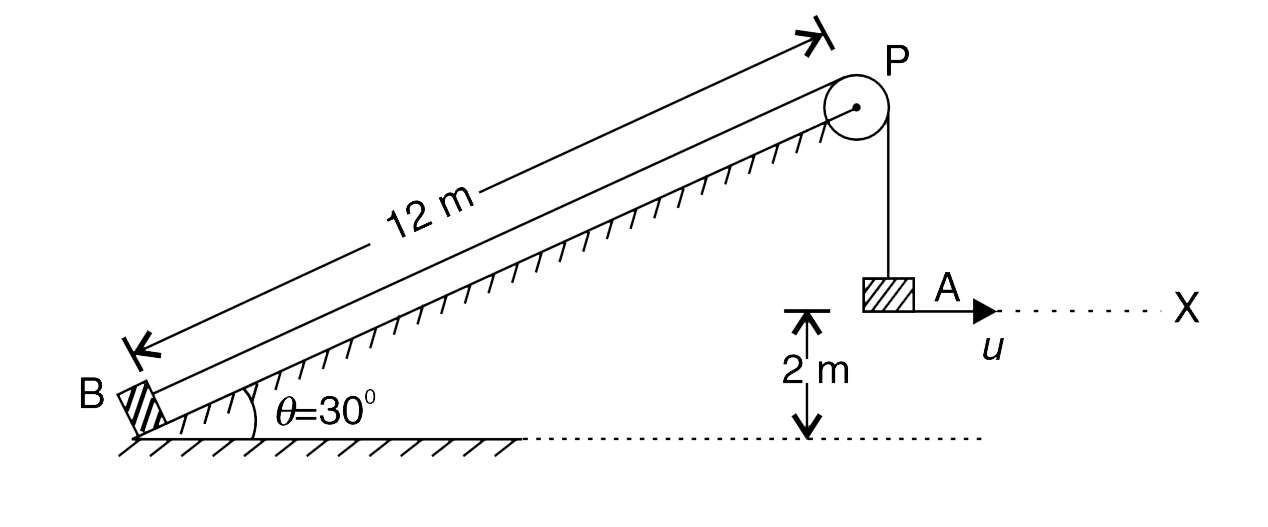
View SolutionTwo particle, each of mass m, are connected by a light inextensible string of length 2l. Initially they lie on a smooth horizontal table at points A ad B distant l apart the particle at A is projectd across the table with velocity u. find th speed with which the second particle begins to move if the direction. of u is :
(a). along BA
(b). at an angle of 120∘ with AB
(c) perpendicular to AB
In each case also calculate (in terms of ma nd u) the impulsive tension in the string.
View SolutionIf u=secθ+tanθ then tanθ in terms of u is____.
View SolutionIf u=secθ+tanθ then tanθ in terms of u is____.
View SolutionA system of two blocks A and B are connected by an inextensible massless string as shown in Fig. The pulley is massless and frictionless. Initially, the system is at rest. A bullet of mass m moving with a velocity u as shown hits block If and gets embedded into it. The impulse imparted by tension force to the block of mass 3m is
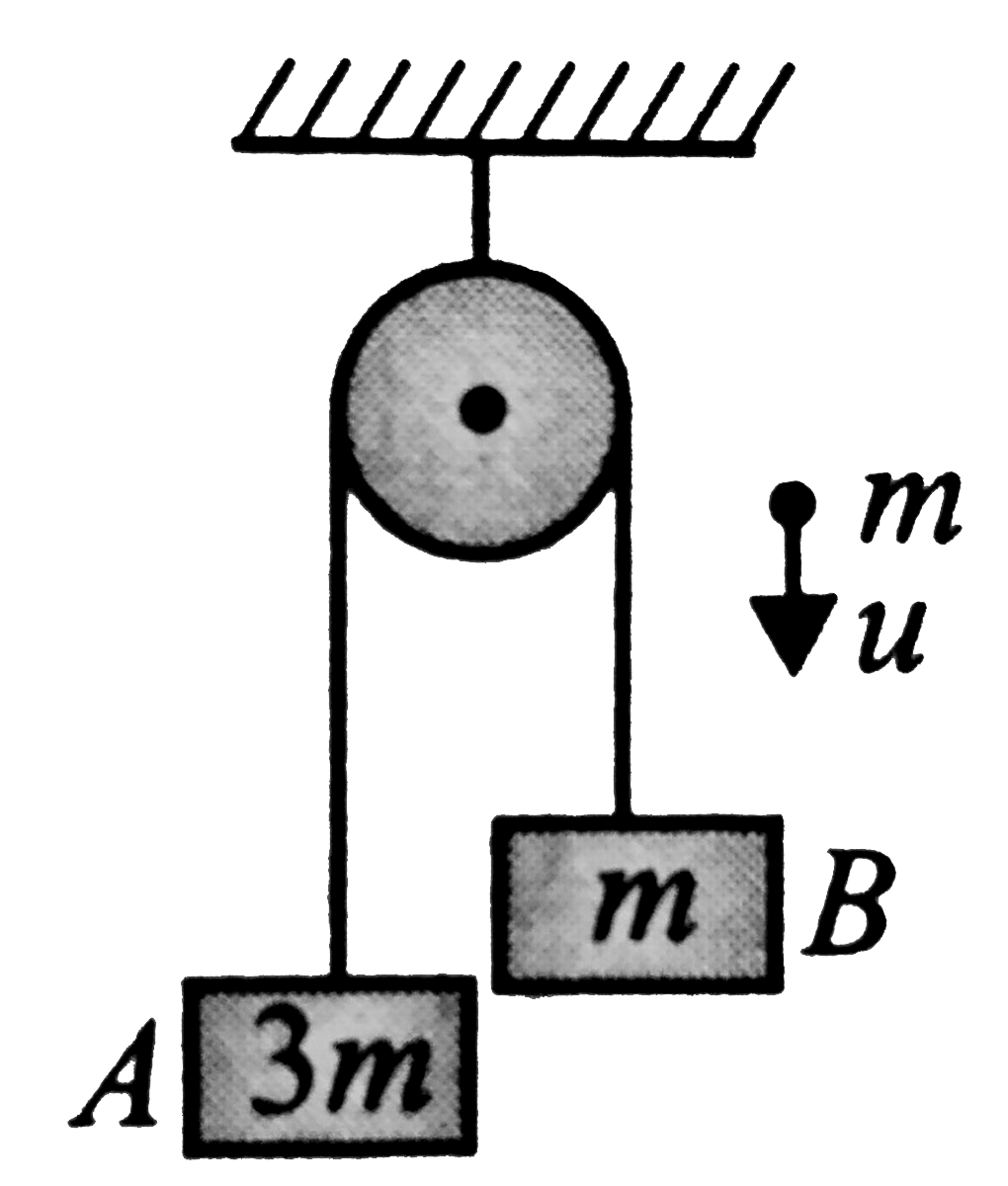
View Solution

